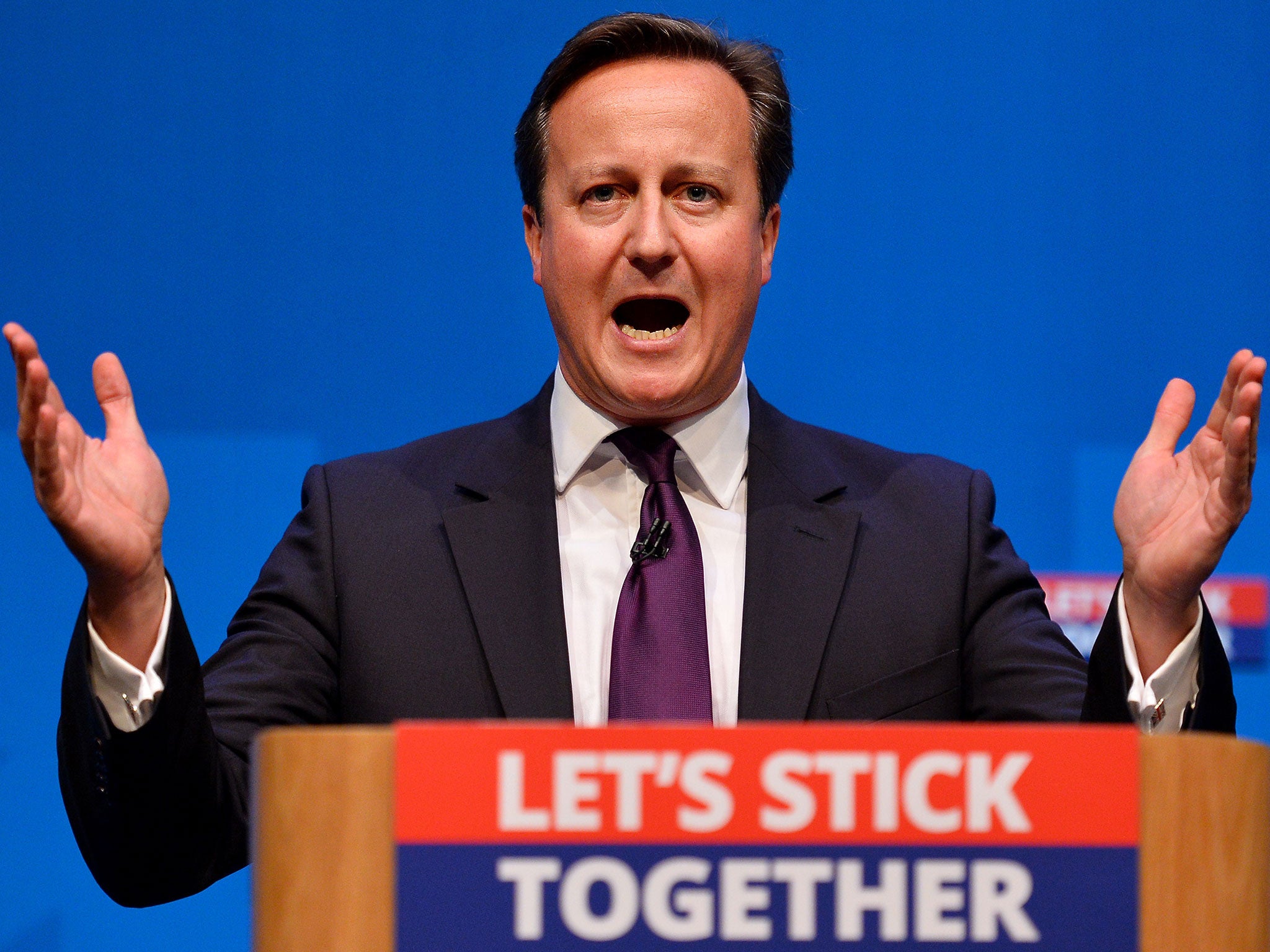A second referendum may be the price David Cameron pays for playing England against Scotland during his election campaign

As ye sow, so shall ye reap. In the case of David Cameron and Scotland, the Prime Minister has spent the past few months sowing the seeds of discord between England and Scotland; he is now going to reap a whirlwind of revivified Scottish nationalism. On his visit to Edinburgh, Mr Cameron will glimpse the first straws in the wind. Nicola Sturgeon, as the whole UK has come to see in recent weeks, is more than a match for the Prime Minister and, while the proceedings will be no doubt polite, Mr Cameron will be left in no doubt as to the scale and strength of Scotland’s ambitions.
The recommendations of the Smith Commission for much greater devolution to Holyrood, which should have had a complete consensus behind them, are now no longer sufficient to assuage the Scottish National Party (SNP). More will be needed from Westminster, if there is to be any prospect of agreement. Mr Cameron is thought to be unwilling to offer more, even though his Chancellor has suggested full fiscal autonomy for Scotland is realistic. A little confused, then.
For all of this, Mr Cameron has only himself to blame. A glance at the Scottish opinion polls shows a sharp spike in support for the SNP immediately after the referendum in which, after all, it was defeated. That was the base from which the SNP was able to launch its recent general election campaign, which left the three Westminster parties with one MP apiece north of the border. It was the biggest shift in the Scottish party system since the Second World War and has placed the Union in extreme jeopardy.
The reason for it is clear enough. It was a sharp, and indeed resentful, reaction to Mr Cameron’s declaration in Downing Street the morning after the referendum that his first priority was to sort out “English Votes for English Laws”. It did not seem to Scotland that Mr Cameron was to be trusted to deliver on the promises made on his behalf by Gordon Brown and others in the last desperate days of the referendum contest.
Mr Cameron then compounded his earlier grievous error by conjuring up the supposed nightmare of a Labour government in partnership with the SNP, even though Ed Miliband went out of his way to rule out any such deal. The Prime Minister, perhaps inadvertently, put party before country, and the consequence of that will face him at Holyrood in human form; Ms Sturgeon – a powerful First Minister also commanding the third largest parliamentary grouping at Westminster and as intent as ever on independence.
At all events, Mr Cameron will be extremely unwilling to concede a further referendum on that subject. But his chances of avoiding one are slim. Nothing he offers will ever be good enough for Ms Sturgeon, and he knows he may not be able to resist a reasonable request for a repeat vote. What is more, Mr Cameron’s proposed EU referendum could also easily provide a pretext for a further Scottish referendum. In particular, he needs to be clear that, in the event of an English vote to leave the EU but a Scottish vote to stay in – perfectly conceivable – the Scottish people would be allowed the opportunity to have their wishes respected, either by vetoing a Brexit or allowing them the option of leaving a UK outside the EU.
On the morrow of a famous personal victory for Mr Cameron, then, he must be looking ahead to these storms with some trepidation. He may be the first Conservative to win a general election outright in more than two decades; he might also be the one who loses Scotland and our place in Europe. He’d best be nice to Nicola.
Join our commenting forum
Join thought-provoking conversations, follow other Independent readers and see their replies
Comments